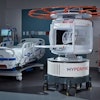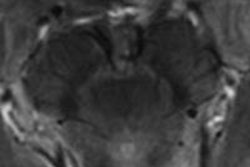MRI's ability to determine brain atrophy patterns in patients with Alzheimer's disease also can be used to measure cognitive decline associated with Parkinson's disease, according to a study published online in Brain.
Researchers from the Perelman School of Medicine at the University of Pennsylvania also found that higher baseline Alzheimer's patterns of atrophy predicted long-term cognitive decline in cognitively normal Parkinson's patients.
Lead study author Dr. Daniel Weintraub, associate professor of geriatric psychiatry at Perelman, said the brain MRI scans can predict which patients with Parkinson's disease will experience long-term cognitive decline or develop dementia in the future.
The study, published November 21, examined overlapped regions of the brain undergoing cognitive decline using the Spatial Pattern of Abnormalities for Recognition of Early Alzheimer's Disease (SPARE-AD) classification system. The technique detected brain atrophy in Parkinson's disease patients and those at imminent risk of cognitive decline before the appearance of clinically identifiable symptoms.
Researchers then applied a SPARE-AD score to a cohort of 84 Parkinson's patients, which included individuals with dementia, mild cognitive impairment, and no dementia, to correlate cognitive impairment across all three groups. A total of 59 Parkinson's patients without dementia were followed for an additional two years.
The analysis found that a higher baseline SPARE-AD score predicted worsening cognitive performance over time, even in patients with normal cognition at baseline.



.fFmgij6Hin.png?auto=compress%2Cformat&fit=crop&h=100&q=70&w=100)




.fFmgij6Hin.png?auto=compress%2Cformat&fit=crop&h=167&q=70&w=250)











